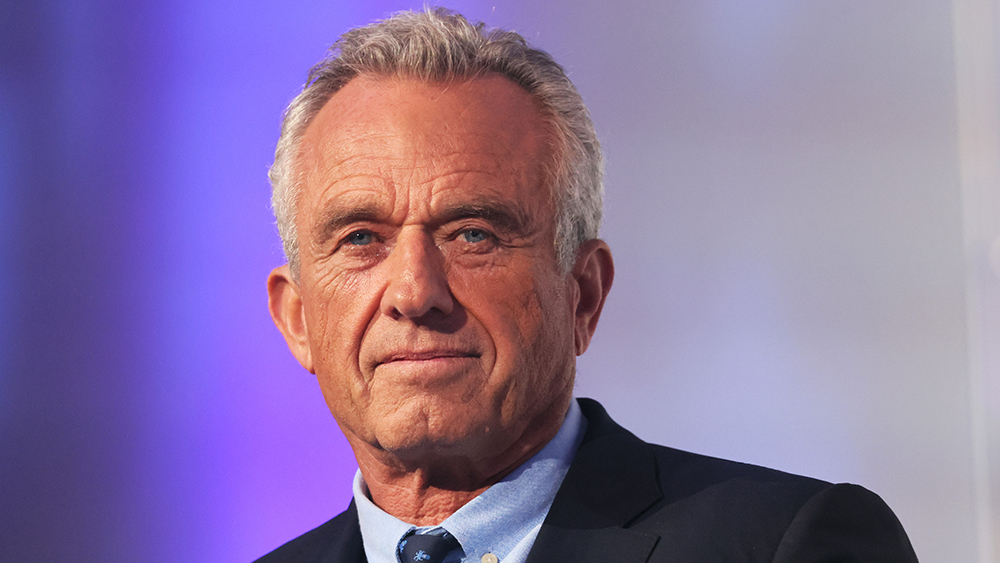 Parler
Parler Gab
Gab
- A study analyzing U.S. energy data (1997-2020) found that despite rapid renewable energy growth, fossil fuel production (coal, oil, natural gas) has not declined, challenging assumptions that renewables naturally reduce carbon-intensive energy use.
- Over 96 percent of fossil fuel output variation was tied to geological reserves – states with abundant resources continued extraction regardless of renewable investments, undermining "zero emission" policy effectiveness.
- The study's author Ryan Thombs argues that market forces alone won't phase out fossil fuels. Measures like carbon taxes, production caps, or state-level mandates – green tyranny in action – may be necessary to force a transition.
- Critics like Olivia Murray highlight renewables' dependence on fossil fuels for manufacturing, transportation and backup power, noting their intermittent nature and infrastructure limitations make full replacement unrealistic.
- The study fuels calls for aggressive policy overhauls (e.g., subsidies, permitting restrictions). But there are serious risks – such as the blackouts in Spain and Portugal – when fossil fuels are removed without reliable alternatives.
The myth of renewable energy: Why fossil fuels aren't going anywhere
Murray further argued wind and solar infrastructure remains dependent on fossil fuels for manufacturing, transportation and backup power. "Until [advocates] start mining lithium by hand and walking it to refineries, I don't want to hear about 'green' energy being renewable," she wrote, dismissing the idea that current technology can fully replace hydrocarbons. (Related: LITHIUM mining for electric vehicles is incredibly destructive to the environment and about as far from "green" as you can imagine.) Thombs wrote in his study that policy shifts, not just market forces, are needed to accelerate a transition. He suggested that state-level mandates could force a decline in extraction, insinuating the need for green tyranny to make Net Zero come true. The debate reflects a broader divide in climate strategy. While renewables now lead new energy generation, their intermittent nature and reliance on existing infrastructure complicate efforts to phase out fossil fuels. Historical context amplifies the challenge: The U.S. has subsidized oil and gas for over a century, entrenching political and economic interests. Thombs' research implies that without direct intervention, such as the production limits seen in France and Germany emissions reductions may stall – at the cost of dependable power. As temperatures rise and extreme weather events multiply, the study adds fuel to calls for aggressive policy overhauls. Whether through taxation, permitting restrictions or federal clean energy mandates, the data suggests that hoping renewables will "crowd out" fossil fuels is insufficient. But actual experience, such as the blackouts in Spain and Portugal in late April, would show that eschewing fossil fuels comes with dire consequences. Visit GreenTyranny.news for more similar stories. Watch this clip arguing that fossil fuels are vital to society's future. This video is from the CONSERVATIVE POLITICS & NWO channel on Brighteon.com.More related stories:
Leftist Canadian MP wants to criminalize endorsement of fossil fuels. Fossil fuels rescue New England from winter's grip amid failed "net zero" push. Oil and gas AREN'T "fossil fuels" – they're RENEWABLE resources constantly recreated by our planet. Sources include: ClimateDepot.com Link.Springer.com Phys.org AmericanThinker.com Brighteon.com“Climate of Fear” challenges mainstream narrative on global warming
By Belle Carter // Share
Report: Almost 100 Aussie kids hospitalized every day due to reactions from common medications
By Ramon Tomey // Share
Study reveals the HIDDEN DANGERS in children’s breakfast cereals
By Ava Grace // Share
Governments continue to obscure COVID-19 vaccine data amid rising concerns over excess deaths
By patricklewis // Share
Tech giant Microsoft backs EXTINCTION with its support of carbon capture programs
By ramontomeydw // Share
Germany to resume arms exports to Israel despite repeated ceasefire violations
By isabelle // Share










